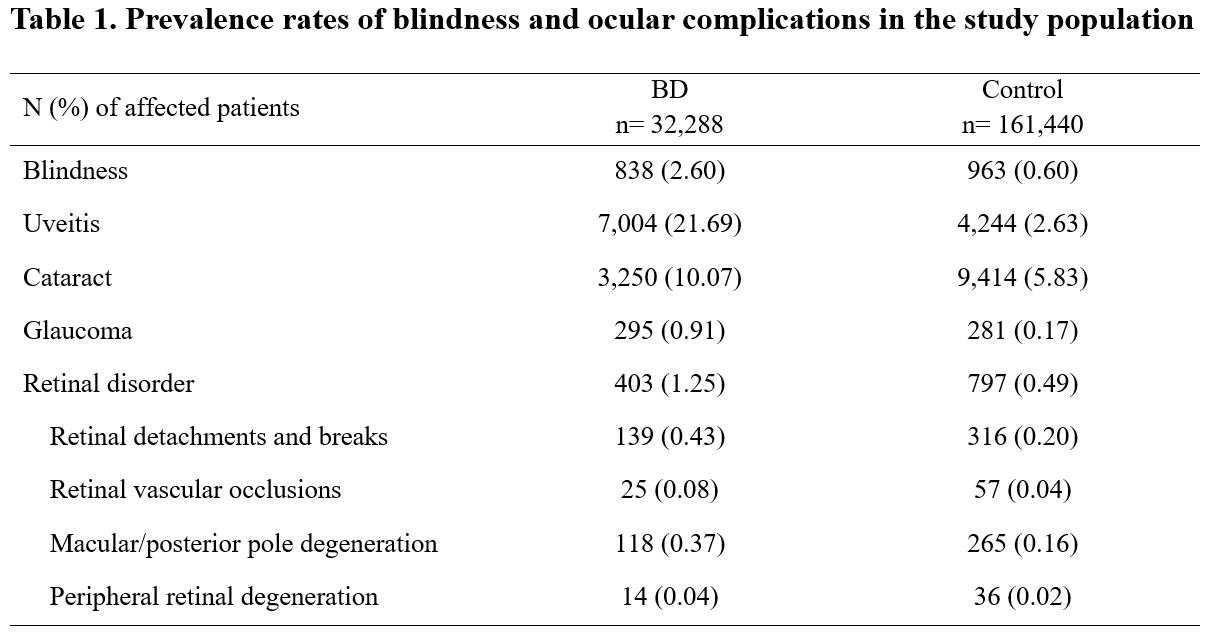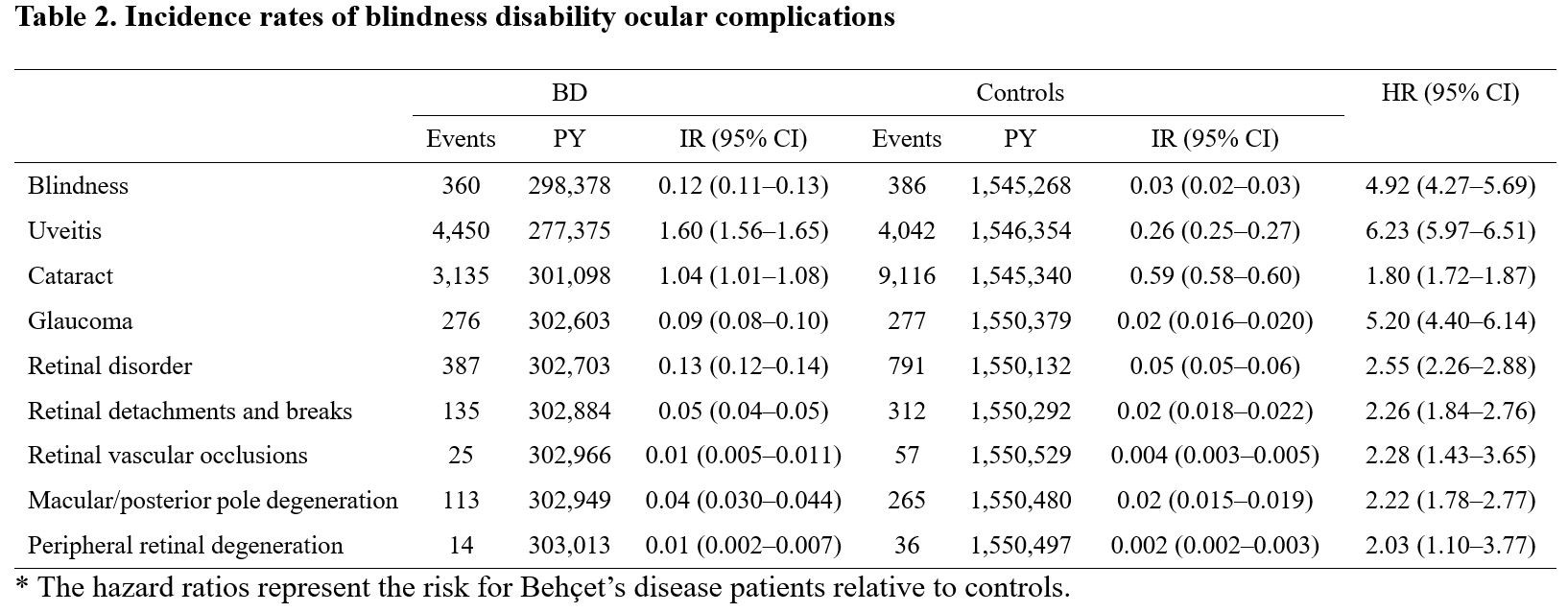Session Information
Date: Monday, November 8, 2021
Title: Epidemiology & Public Health Poster III: Other Rheumatic & Musculoskeletal Diseases (1022–1060)
Session Type: Poster Session C
Session Time: 8:30AM-10:30AM
Background/Purpose: To examine the risk of ocular comorbidities in a nation-wide cohort of patients with Behçet’s disease (BD) compared to general population in Korea.
Methods: We conducted a population-based cohort study using 2002-2017 Korean National Health Insurance Service database to examine the risk of diverse ocular comorbidities associated with BD compared to general population. Patients with BD and controls were matched on age and sex at a ratio of 1:5. The primary outcome was blindness. Secondary outcomes were uveitis, and surgical procedure requiring cataract, glaucoma, or retinal diseases. Cox proportional hazard ratio models were used to estimate the hazard ratios (HRs) and 95% confidence interval (CIs) for the outcomes comparing BD patients and controls.
Results: A total of 32,288 BD patients and 161,440 controls were included in the study. During a mean 9.38 years of follow-up, the incidence rate per 100 person-years was 0.12 in the BD group and 0.025 in the control group, respectively. The corresponding HR (95% CI) for the primary outcome was 4.92 (4.27 to 5.69). The risk of all secondary outcomes was significantly elevated among the patients with BD, with the HR (95% CI) of 6.23 (5.97 to 6.51) for uveitis, 1.80 (1.72 to 1.87) for cataract, 5.20 (4.40 to 6.14) for glaucoma, and 2.55 (2.26 to 2.88) for retinal disorders.
Conclusion: This large population-based study showed that BD patients were at higher risk of diverse ocular comorbidities compared to the general population. In particular, the risk of low vision including blindness was the 4.92 times.
To cite this abstract in AMA style:
CHOI S, Shin A, Shin J, Choung H, Ha Y, Lee Y, Lee E, Park J, Kang E. Risk of Ocular Comorbidities and Blindness Among Patients with Behçet’s Disease: A Nationwide Population-based Cohort Study in Korea [abstract]. Arthritis Rheumatol. 2021; 73 (suppl 9). https://acrabstracts.org/abstract/risk-of-ocular-comorbidities-and-blindness-among-patients-with-behcets-disease-a-nationwide-population-based-cohort-study-in-korea/. Accessed .« Back to ACR Convergence 2021
ACR Meeting Abstracts - https://acrabstracts.org/abstract/risk-of-ocular-comorbidities-and-blindness-among-patients-with-behcets-disease-a-nationwide-population-based-cohort-study-in-korea/


